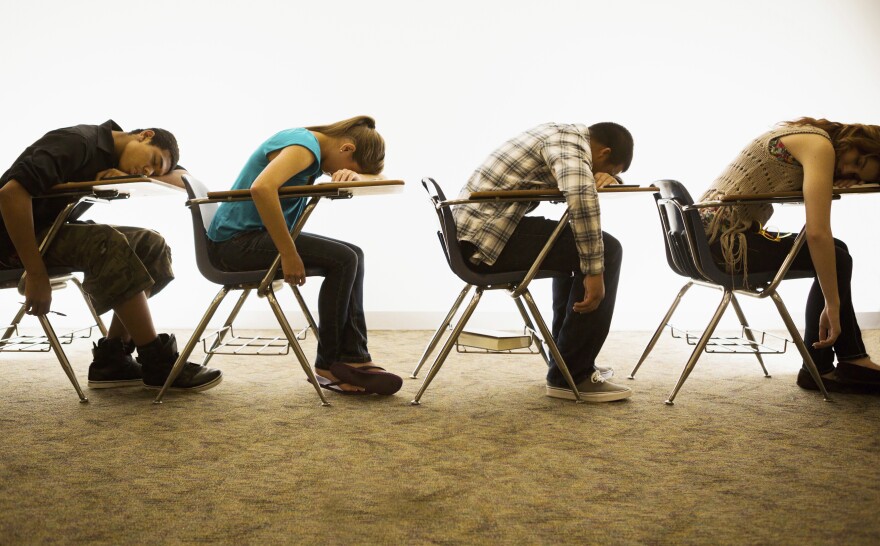Most of the country, with the exception of those living in Arizona and Hawaii, are a bit sleep deprived this week after the annual change to daylight saving time.
While many welcome the additional sunlight after work, there’s a price to pay: being bleary eyed, sluggish and the non-stop yawning.
Dr. Devon Smith is a sleep specialist and said there’s a reason for that.
“One study actually found that we receive about 40 minutes less sleep on the Monday after springing forward, compared to other nights of the year. And the unfortunate thing with this is that other research has indicated that we might never fully adjust to daylight saving time. It might last months, this sleep deprivation, getting less sleep during the evening.”
Even though it’s just an hour change, Smith said it’s so impactful because it messes with circadian rhythms.
“Which is essentially our internal clock that sets patterns for sleep, eating, even temperature regulation," Smith said. "This is all dependent on sunlight. And so, the sunrise is occurring later in the morning. So, we're not getting that dose of light around when we wake up or around when most people wake up for what we call social rhythms, so, going to work or doing some of what's expected of us during the day. And so, when we don't get that sunlight close to when we wake up, it can shift our mood, it can shift our sleep schedule, it really interferes with that circadian clock.”
Studies show that the time change results in increased traffic accidents, heart attacks and other mood disorders after moving clocks forward an hour. So why even do it? Mostly, because that’s how it’s always been done.
There are efforts to change the switching back and forth with growing support to keep daylight saving year-round. The Sunshine Protection Act has bipartisan support in the Senate and has been referred to a house committee. A similar bill introduced last year was passed by the Senate but wasn’t well-received in the House.
Utah has enacted legislation to make daylight saving time permanent but can’t make the change without congressional approval or neighboring states enacting similar legislation.
But Smith said that’s not a good idea. She said science supports standard time because it aligns better with human circadian biology.
“With this regulating so much of our biological functioning, this artificial shifting of the clock time causes this misalignment," Smith said. "If we shifted to a permanent standard time, essentially it would more closely match our natural clock rhythms anyway.”
The United States tried going to daylight saving time year-round back in the early 1970s. The experiment didn’t last long; it was retracted within the year.
“This permanent daylight saving time delayed the sunrise until after 8 a.m. in much of the country and sometimes even as late as 9 a.m. or 10 a.m. farther north," Smith said. "This was really problematic for people. You know, kids were going to school in the dark walking to the bus stop."
The Utah ski industry doesn’t support it either, noting that resort staff wouldn’t be able to open the mountains until 10 a.m. because they can’t do their jobs in the dark.
If the legislation were to pass, Smith suggested those who must wake early get a light box and use that for 30 minutes every morning.
While most people don’t change their schedules in advance of the clock springing forward, she said it can help to adjust your bedtime 15 to 20 minutes earlier each night the week before the spring change.


